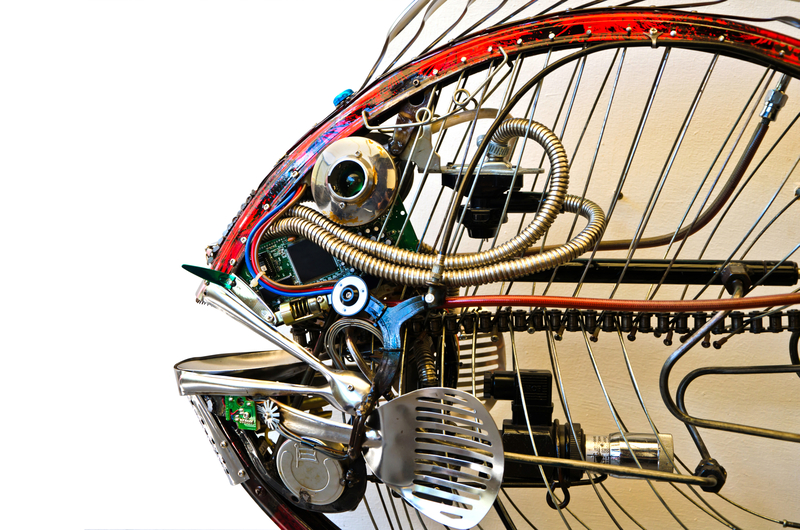Driving Sustainable Change Through Metal Recycling
In today's rapidly evolving world, where environmental concerns are at the forefront of global discussions, metal recycling emerges as a pivotal player in driving sustainable change. By adopting responsible recycling practices, we contribute to a healthier planet and pave the way for a more sustainable future. In this article, we delve into the significance of metal recycling, its impact on the environment, and how it fosters a circular economy.
The Importance of Metal Recycling
Metal recycling plays an essential role in reducing the ecological footprint of industrial activities. By recycling metals, we can:
- Conserve natural resources: Recycling metal reduces the need for mining new raw materials, thereby preserving natural landscapes and biodiversity.
- Reduce energy consumption: The energy required to recycle metals is significantly less than that needed for extracting and processing virgin materials.
- Decrease greenhouse gas emissions: Recycling metals produces fewer emissions, helping mitigate climate change.

Understanding the Metal Recycling Process
The metal recycling process is a multi-step journey that transforms waste into valuable reusable materials. Let's explore the key stages involved:
1. Collection and Sorting
Recycling begins with the collection of metal waste from various sources such as households, industries, and construction sites. Once collected, the metals are sorted based on type and quality. Automated systems and manual techniques are employed to ensure precision, as different metals have unique recycling needs.
2. Shredding and Melting
After sorting, metals are shredded into smaller pieces to facilitate easier handling and melting. The shredded metals are then melted in furnaces. This phase varies in duration depending on the type and quantity of metal.
3. Purification and Solidification
The melted metals undergo purification to remove impurities. Techniques such as electrolysis or magnetic separation ensure high-quality end products. Once purified, the metals are solidified into blocks or sheets, ready for reuse in various industries.
Benefits of Metal Recycling
Metal recycling offers a host of benefits that extend beyond environmental protection:
- Economic Growth: The metal recycling industry creates jobs and stimulates economic growth by supplying raw materials domestically, reducing reliance on imports.
- Energy Savings: Recycled metal saves up to 95% of the energy required to produce new metal from raw ore.
- Sustainable Manufacturing: Recycled metals are integral to the manufacturing of sustainable products, promoting an eco-friendly industrial sector.
Challenges in Metal Recycling
Despite its numerous advantages, the metal recycling process faces certain challenges:
- Collection Efficiency: Achieving effective collection systems remains a hurdle, as metal waste is often dispersed across wide geographical areas.
- Contamination Issues: Contaminants such as paints and coatings can impede recycling processes and reduce material quality.
- Economic Viability: Fluctuating market prices for recycled metals can affect the financial sustainability of recycling programs.
The Role of Technology in Metal Recycling
Technological advancements are revolutionizing the metal recycling landscape by:
- Enhancing Sorting Precision: Advanced sensors and AI-driven systems enable precise sorting, minimizing losses and maximizing recovery rates.
- Innovating Recycling Methods: New techniques such as bioleaching are being developed to recover metals from low-grade ores, improving efficiency.
- Boosting Market Dynamics: Digital platforms and innovations in logistics are improving the accessibility and competitiveness of recycled metals.

Fostering a Circular Economy Through Metal Recycling
Metal recycling is at the forefront of the circular economy--a model focused on reusing, repairing, refurbishing, and recycling materials to extend their lifecycles. By integrating recycled metals into new products, industries reduce waste, lower costs, and contribute to sustainable change. In this way, metal recycling serves as a cornerstone of modern sustainability efforts.
Conclusion: Shaping a Sustainable Future
Driving sustainable change through metal recycling is an essential endeavor for a prosperous future. The widespread adoption of recycling practices not only conserves resources and reduces environmental impact but also paves the way for innovative technological advancements and economic growth. As stakeholders, it is imperative to support and promote metal recycling initiatives to ensure a healthy planet for generations to come.
By understanding the significance of metal recycling, fostering a circular economy, and navigating challenges with technological innovation, individuals, businesses, and governments alike can collaboratively shape a more responsible, sustainable, and thriving world.